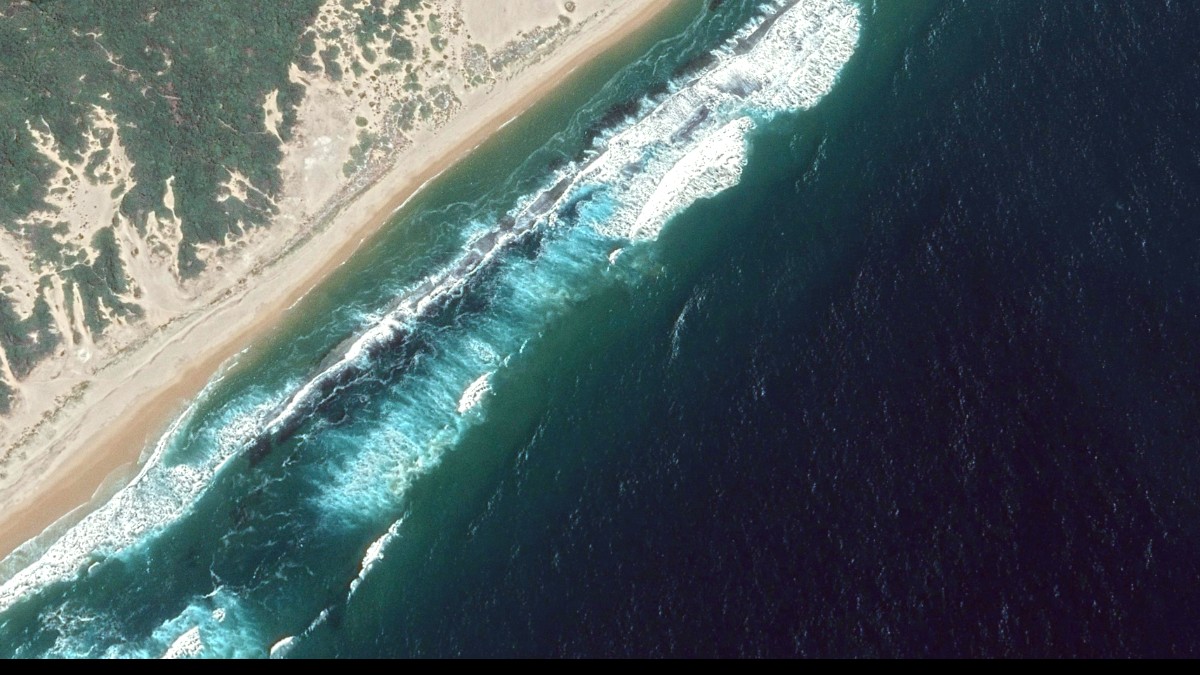
Mozambique
Dry Season (May to October): This period is generally the most pleasant. Temperatures are comfortable, ranging from 20°C to 28°C (68°F to 82°F). Rainfall is minimal, and humidity levels are notably lower. Clear, sunny skies are common, creating excellent conditions for outdoor activities and beach relaxation. Ocean waters stay warm.
Wet Season (November to April): Higher temperatures, often exceeding 30°C (86°F), with increased humidity. Rainfall is more frequent and intense, specifically from January to March. Downpours are often short but heavy. Sunny periods still occur, and the landscape appears lush and green. High humidity can make the air feel heavy.
Inhambane's popularity shifts with the seasons, impacting crowd levels and prices.
High season (June to September, and December to January) presents ideal weather, best diving visibility, and peak marine life (humpback whales in July-September). Shoulder season (April, May, October, November) sees good weather with fewer crowds and potentially lower prices. Low season (February to March) offers the lowest prices and quiet experiences, but comes with high heat, humidity, and peak rainfall.
Hot, Humid, Rain
Lowest prices, fewer tourists, lush landscapes.
Highest rainfall, potential for travel disruptions, cyclone risk.
Transitionary Period
Good weather, fewer crowds, better prices. Whale sharks and humpback whales in Oct/Nov.
Early April might have rain. November sees rising humidity.
Ideal Conditions
Ideal weather, best diving visibility, peak whale shark (Jan-Mar) & humpback whale (Jul-Sep) sightings.
Higher prices, more crowds, advance booking necessary.
The coastal regions of Mozambique, including Inhambane, may experience tropical cyclones and severe tropical storms. This "cyclone season" mainly runs from January to March. These weather events bring heavy rainfall, strong winds, and localized flooding. Travelers planning a trip during these months monitor weather forecasts closely. Be prepared for potential disruptions, including flight delays or cancellations, and temporary road closures. While full-blown hurricanes are infrequent, tropical storms may still have substantial impact.
Match your visit to your main interests for optimal experience. Diving and Snorkeling are best from May to October for visibility and calm seas. Whale sharks are present all year; peak sightings for young whale sharks are January to March. Manta rays are consistently found throughout the year. Humpback whales migrate from May to November, with peak sightings July through September. Beach Activities and Cultural Exploration are most comfortable during the dry season (May-October).
May to October for best underwater clarity.
Present year-round, peak sightings Oct-Mar (young sharks Jan-Mar).
Migration from May to November, peak July-September.
Most comfortable in the dry season (May-October).
Consistently found throughout the year.
Mozambique recently introduced an eVisa system. Confirm your country's specific requirements well in advance of your trip.
Mozambique's new eVisa system streamlines applications. For eligible countries, you submit documents and payment digitally. For others, traditional visa applications go through Mozambican embassies or consulates. IVisa and VisaHQ offer consumer visa services.
Gather correct documents before applying and upon arrival.
Most standard tourist activities in Inhambane province do not need special permits. For scientific research, commercial photography/filming, or extended stays, inquire about necessary permits from Mozambican authorities. Professional diving with dive centers uses proper certification from agencies like PADI or SSI, which is standard industry practice, not a specific Mozambican permit.
Certain health documents are recommended for entry. A Yellow Fever vaccination certificate is for all travelers arriving from, or transiting through, high-risk yellow fever countries. It's advisable to carry this certificate regardless of origin. Malaria prophylaxis is not an entry requirement, but Inhambane is a malaria-risk area. Consult a medical professional well in advance about prophylaxis. Ensure routine vaccinations are up to date.
Certificate for high-risk country arrivals/transits. Carry it.
Inhambane is a risk area; discuss prophylaxis with a doctor.
Ensure Tetanus, Diphtheria, Measles, etc. Are current.
Advised for high-risk travelers or prolonged stays in remote areas.
Evidence of sufficient funds for your stay.
Managing your finances makes a practical part of any trip. Inhambane offers options for various budgets, from frugal backpacking to more luxurious experiences.
Mozambique’s official currency is the Mozambican Metical (MZN). Exchange rates fluctuate, so check current rates before your trip.
Tipping guidelines and negotiation practices.
Be proactive in your preparations for a safe journey.
Consult a travel health clinic or your doctor well in advance of your trip for personalized vaccination advice.
A Yellow Fever vaccination certificate is for all travelers arriving from, or transiting through, high-risk yellow fever countries. Carry this document. Malaria is a risk in Inhambane; discuss malaria prophylaxis with your doctor. Routine vaccinations should be current.
Healthcare facilities in Inhambane are basic. A provincial hospital exists but resources are limited. Serious medical conditions may need evacuation to Maputo or South Africa. Private clinics sometimes offer better services.
Carry a basic Travel first aid kit.
Medical evacuation may be a consideration for serious issues.
Do not drink tap water. Use sealed bottled water, a Water purification filter bottle, or Purification tablets. Eat at reputable establishments. Food should be thoroughly cooked and served hot. Caution with raw or undercooked items.
Rely on bottled or filtered water.
Avoid unpeeled fruits and salads washed in tap water.
Inhambane and popular tourist areas like Tofo are generally safe. Petty crime (pickpocketing, bag snatching) can occur in crowded areas. Night walking alone in poorly lit or secluded areas is not advised. Road conditions vary; night driving is not recommended due to hazards.
Stay vigilant, especially in busy areas.
Avoid night driving due to road conditions and obstacles.
| Category | Recommendation/Details | Affiliate Links |
|---|---|---|
| Travel Insurance | Comprehensive travel insurance is highly recommended. Cover emergency medical treatment, medical evacuation, trip cancellation/interruption, and theft. | World Nomads, SafetyWing, Insubuy |
| Natural Disaster Risks | January to March is cyclone season. Monitor local weather reports and follow advice from accommodation or authorities. Heavy rains can cause localized flooding. | |
| Emergency Contacts | Police/Medical/Fire: 112 or 119. Save accommodation details and nearest embassy/consulate information. |